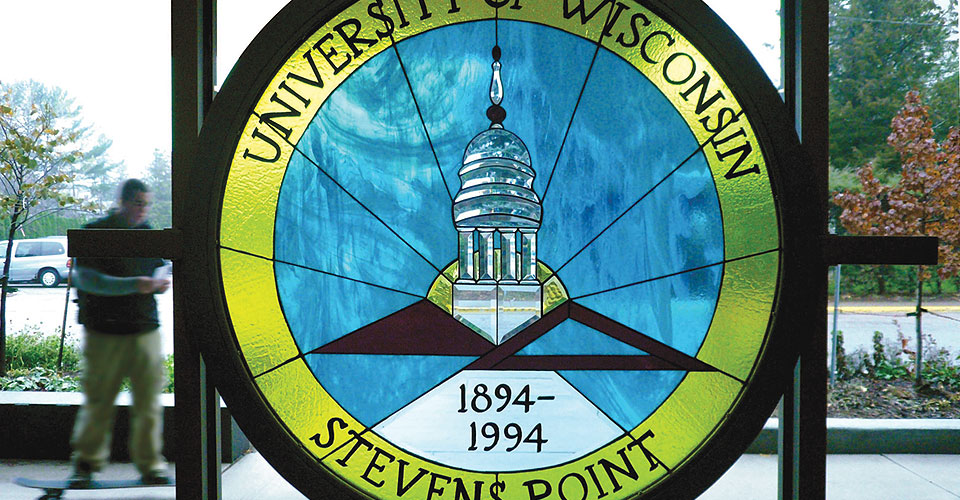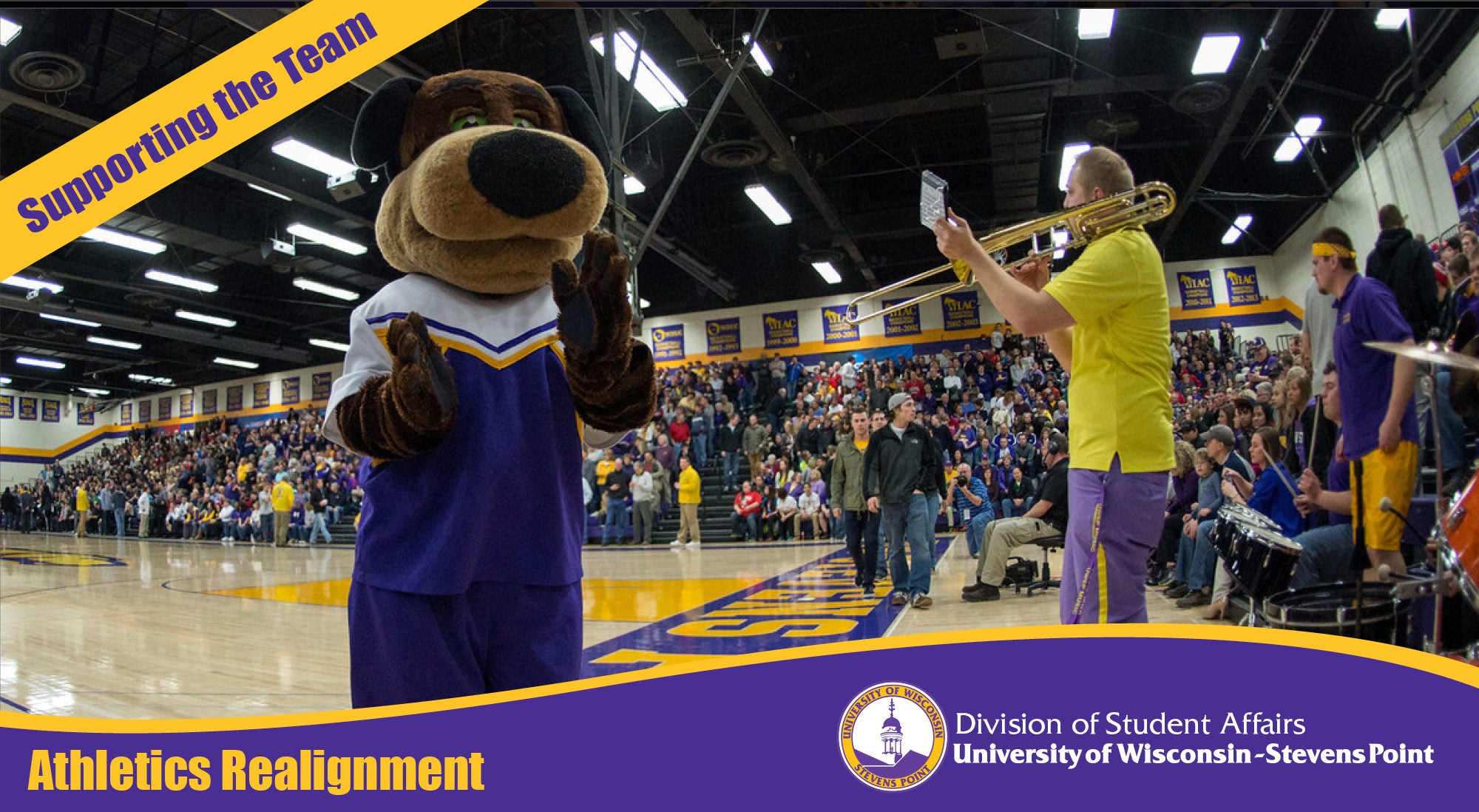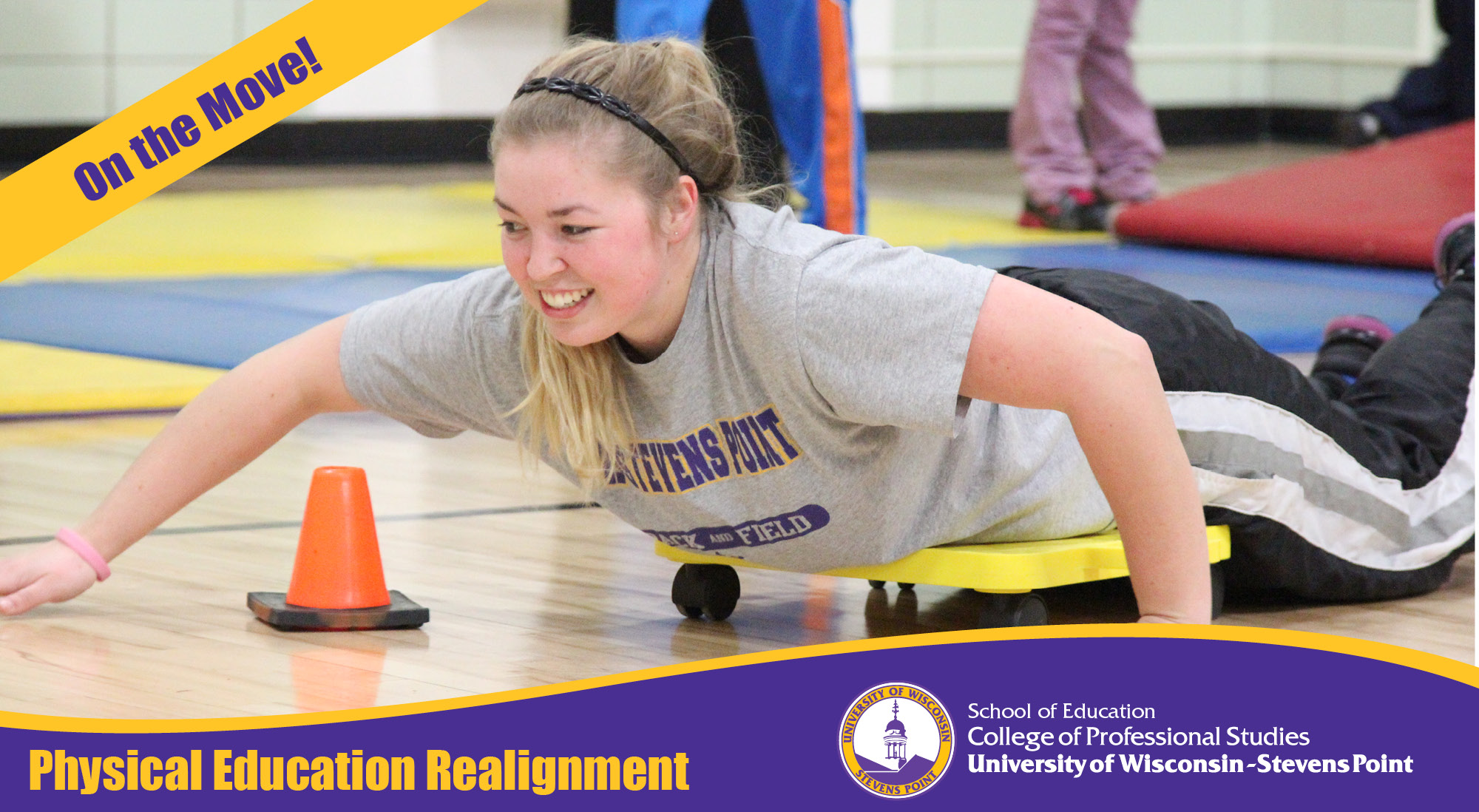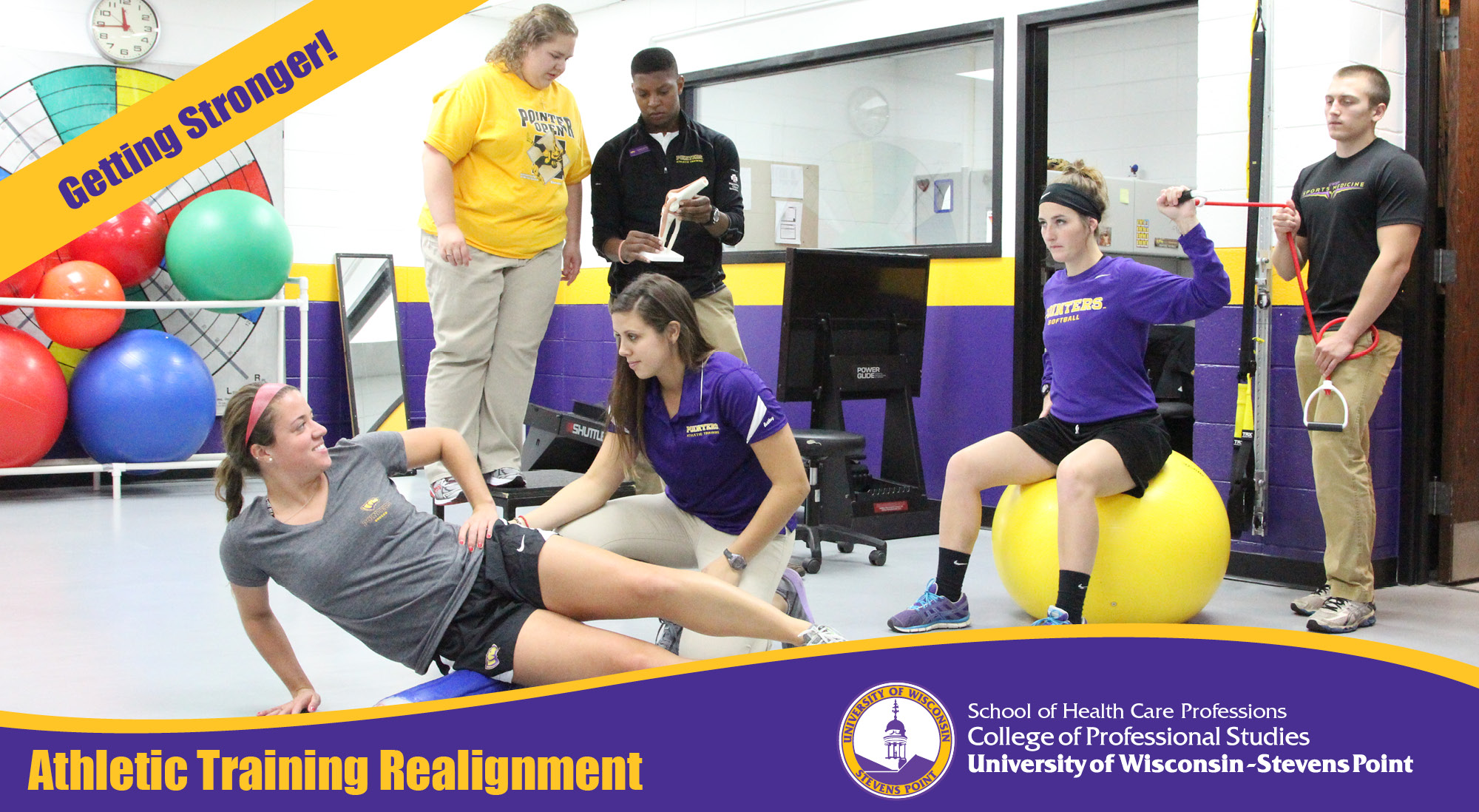
The College of Professional Studies at the University of Wisconsin-Stevens Point will have a new look soon. As of July 1, 2015, several programs moved, departments changed and the college has fewer, but larger and stronger, academic units

Among the most notable of the changes is the Department of Athletics, which will report through the Student Affairs division. There are many reasons why a majority of NCAA Division III athletics programs report through student affairs–it strengthens support from students, adds opportunities to share facilities, increase co-assignment opportunities for coaches, and brings many collaborative opportunities from running summer sport camps to selling apparel and tickets.

The physical education, health education and coaching programs will become part of the School of Education (SOE). The School of Education is one of the largest and strongest academic units on campus. Aligning these programs within the SOE will bring greater strength and opportunity. As a result, collaborations between adapted physical education and special education will be facilitated; academic support services such as advising, outreach, graduate-level program support, DPI reporting support, and access to programming for pre-services teachers will be advanced; and new and innovative programs will be developed.

Our athletic training education program (ATEP) will align with the School of Health Care Professions (SHCP). The Commission on Accreditation of Athletic Training Education (CAATE), the national organization that accredits athletic training programs, has recommended this alignment–and for good reason. It recognizes athletic training as a health profession and allows for collaborative programming with other health care fields such as physical therapy, health care administration and nursing. Like most health care fields, requirements to practice as an athletic trainer are shifting toward a more advanced degree. Positioning athletic training within the School of Health Care Professions will provide the necessary support for this transition.
The College of Professional Studies is comfortable in our belief that these changes (and others in various stages of evaluation and approval) will strengthen our programs and position them for successful futures.
